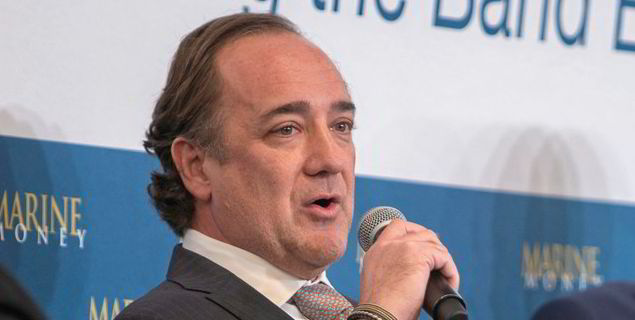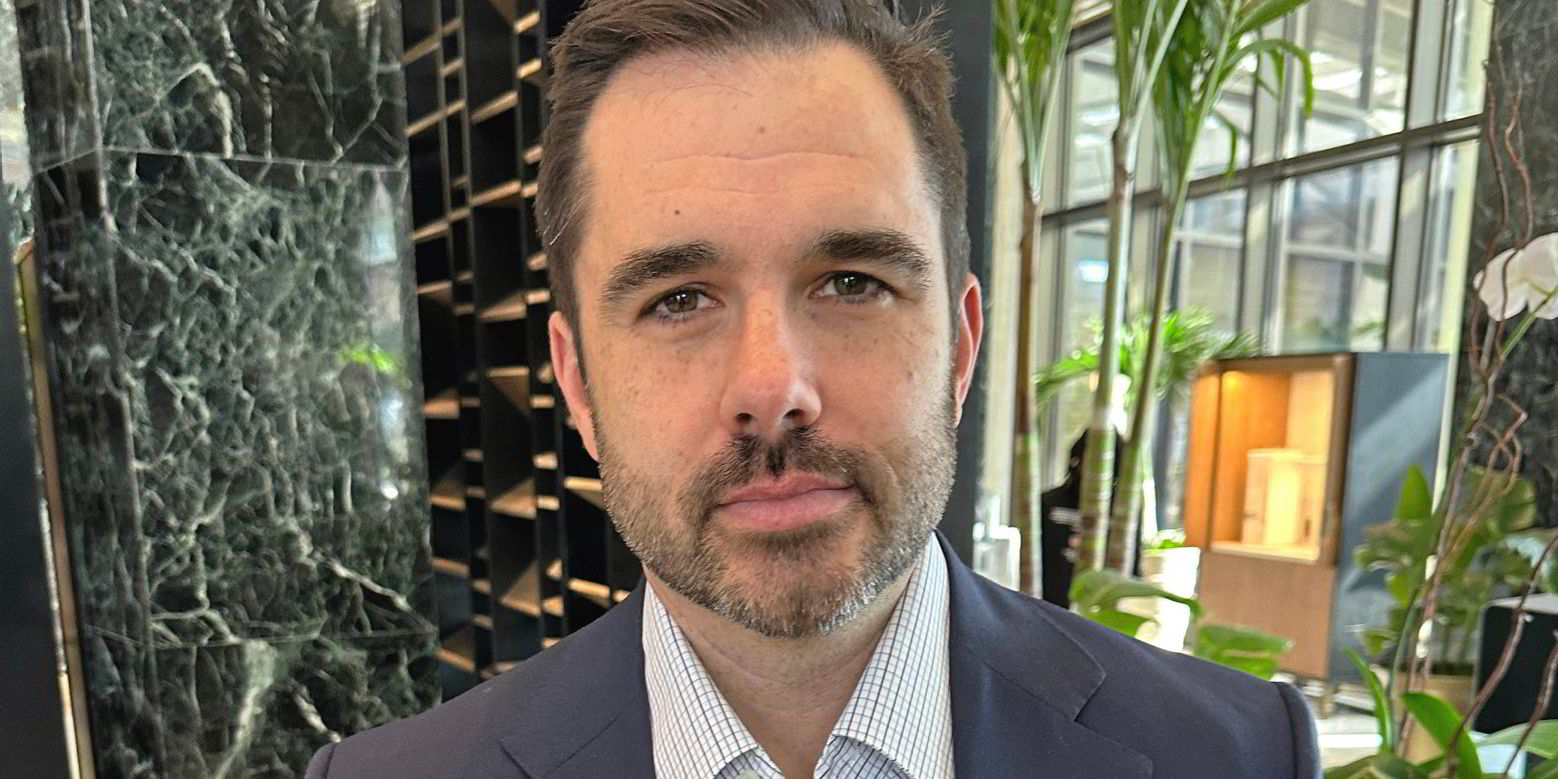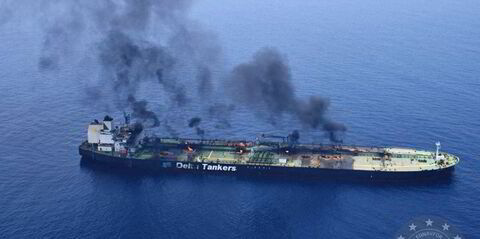New York-based Genco Shipping & Trading has scored a hat-trick at the top of Webber Research & Advisory’s annual environmental, social and corporate governance (ESG) rankings, while it was a very different outcome for the previous runners-up.
The John Wobensmith-led owner of dry bulk tonnage finished top of the table for the third consecutive year even as analyst Michael Webber enlarged the field to 64 public shipping companies from 52.
Meanwhile, last year’s second-place finisher — Eagle Bulk Shipping of Connecticut — tumbled all the way to 14th after it recently took defensive measures to avoid a potential takeover, including buying back the 28% shareholding of private equity’s Oaktree Capital Management for $219m.
At the top of the tables, Webber’s move to include more Oslo and Asia-listed companies resulted in a new company cracking the top-five finishers.
Hong Kong-listed dry trade owner Pacific Basin make its debut at fifth. Between Genco and Pacific Basin were Triton International, Matson and Irish product tanker owner Ardmore Shipping. Matson and Ardmore both placed in the top five in 2022.
“It’s an honour to be recognised by the first-class team at Webber Research for the third straight year ranked number one,” Genco chief executive John Wobensmith told TradeWinds.
“It highlights the strength of our platform and the consistency that has been developed. Just like our commercial platform and value strategy, our ESG initiatives are well planned and executed.”
Webber’s expanded field meant there were changes at the bottom of the tables as well.
Cyprus-based Castor Maritime had finished last in the rankings in 2021 and 2022, but the new basement dweller is Greek tanker owner Top Ships, which had not previously been included in the tables.
Following Top at the bottom of the list are Castor at 63rd and perennial laggards StealthGas and Tsakos Energy Navigation. Fellow Greek owner Euroseas was evaluated for the first time and rounded out the bottom five at 60th.
As TradeWinds has reported, Top Ships and Castor are two of the companies that have financed fleet growth through equity raises conducted by US investment bank Maxim Group. The Maxim raises increasingly have become subject to public criticism for destroying shareholder value.
TradeWinds’ financial newsletter Streetwise recently reported that Top Ships’ recent share price of roughly $0.60 would have been worth the equivalent of $43.3trn at its inception in 2004 as a result of massive follow-on shares sales and a dozen reverse stock splits over its lifetime.
“We want to reiterate the idea that underpins this entire endeavour, which is that we believe there is no longer a place in the public shipping markets for companies that do not prioritise strong corporate governance and capital stewardship,” Webber said in the new report.
“We believe that risk premiums associated with poor governance and capital discipline should continue to widen, eventually pricing-out conflicted players and antiquated structures from public markets.”
Webber continued to trace a correlation between ESG best practices and stock performance.
According to this year’s data, companies in the top quartile outperformed the bottom group by 5% over one year, 88% over five years and 157% since inception.
Companies with the weakest ESG scores underperformed by 10% over a year, 83% over five years and 98% since inception.
Webber’s inclusion of 15 new companies this year meant each quartile expanded to 16 from 13 — three companies from last year’s report were dropped from the tables.
That expansion was enough to keep Eagle Bulk Shipping — a past three-time winner of the top ranking — just barely within the first quartile at 14th.
The Stamford-based company was docked not only for buying back the Oaktree Capital Management shares at a trading premium, but also for introducing anti-takeover language in its bylaws commonly known as a “poison pill”.
This came after Greek container ship owner Danaos Corp accumulated 16.7% of Eagle Bulk shares in open-market purchases. The “pill” prevents any holder from collecting more than 15% of the stock, but Danaos is grandfathered in for its current total.
Castor subsequently disclosed a 14.99% stake in the Gary Vogel-led owner, meaning two fellow New York-listed shipowners now control about a third of the stock combined.
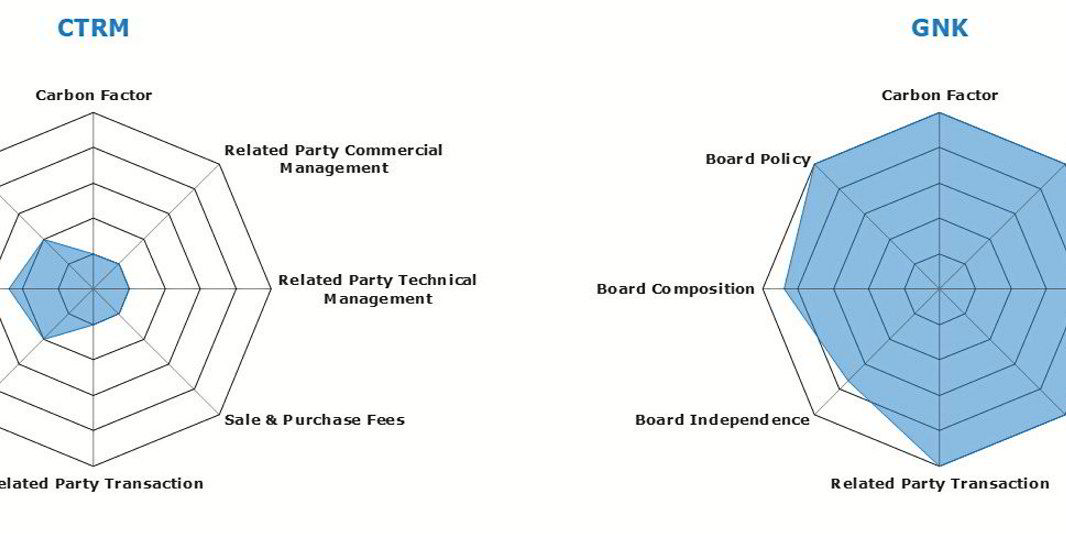
While Danaos has publicly scolded Eagle Bulk for the measures on governance grounds, it continues to hold a lower ESG rating than Eagle Bulk.
Danaos again finished in the bottom quartile at 49th. That was seven spots lower than last year, but this was partially explained by the addition of the newcomers to the tables. Webber said Danaos has made incremental progress toward better ESG despite the low ranking.
Another US-based owner that has fallen down the tables is New York tanker owner International Seaways, which injected its own poison pill in 2022 after Norwegian shipping magnate John Fredriksen bought more than 16% of the company.
International Seaways tumbled from second to 10th in last year’s rankings, and fell a few more spots to 13th in the current table. Webber said this reflected the impact of the anti-takeover language on a rolling-average basis.
Even with a lower ranking, International Seaways is considerably higher in the tables than Fredriksen’s public company, Frontline, which finished 30th this year.
Reporting carbon emissions
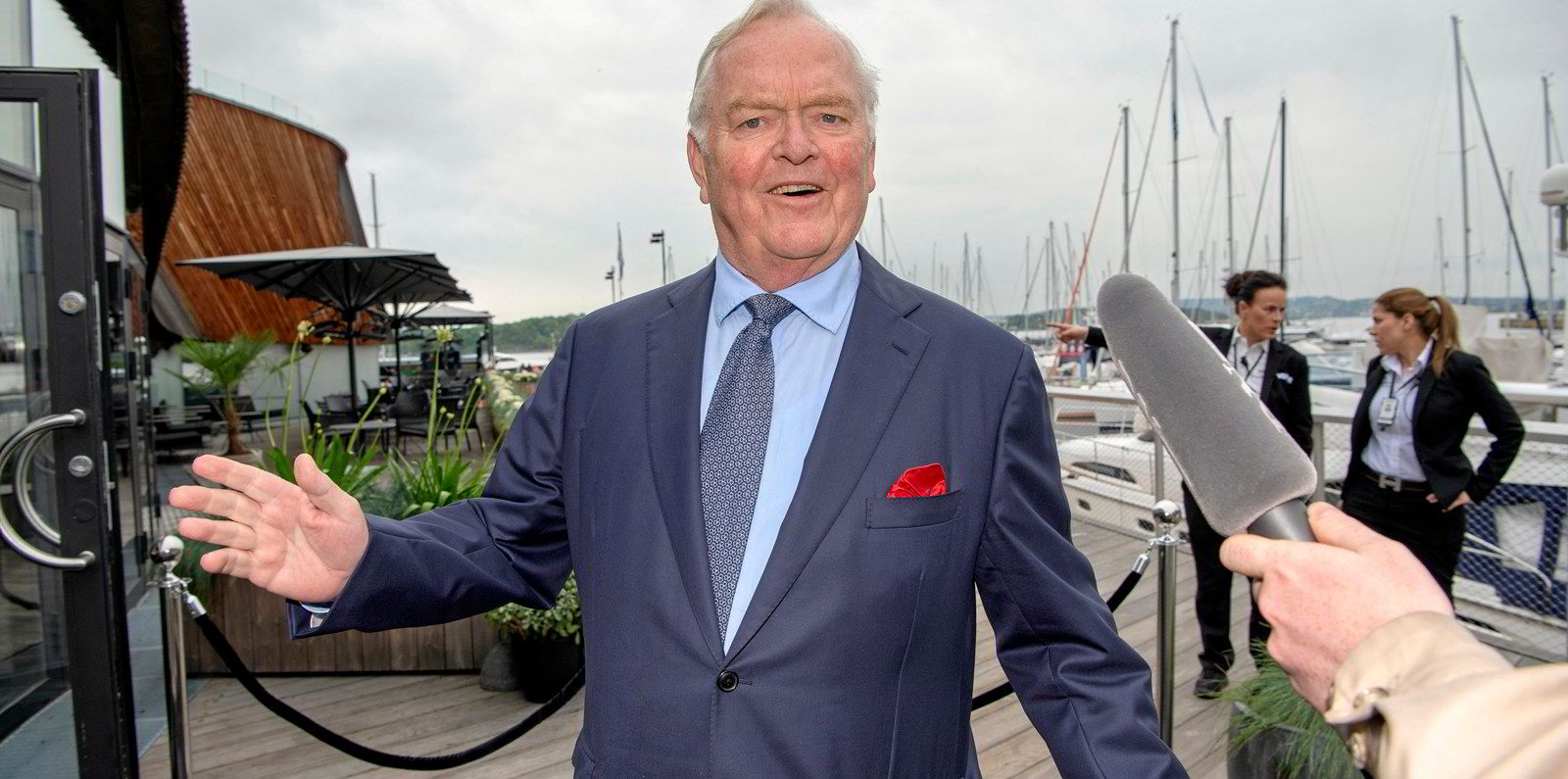
When Webber originated the scorecard in 2016, it focused solely on governance matters. The analyst later added social and environmental measures as the ESG movement grew in importance.
The ratio of companies publicly disclosing their carbon emissions has steadily improved, reaching 93% in this year’s report. This is up from 79% last year, 71% in 2021 and 42% in 2020.
With the improvement, it has become easier for Webber to disclose the outliers rather than those in compliance with the practice.
The six companies currently not reporting are Herbjorn Hansson’s Nordic American Tankers (NAT), AMSC, Castor Maritime, Excelerate Energy, StealthGas and Top Ships.
Like Castor and StealthGas, Norway-based NAT has steadily ranked in the bottom quartile of Webber’s ESG rankings in recent years, despite communicating in shareholder letters its supposed strength in governance standards.
For the first time, Webber’s 2023 rankings also break out company rankings by operating sectors. They also add what Webber calls “radar charts” graphically depicting each company’s strengths and weaknesses.
Read more
- Danaos closes in on Chinese capesize quintet in $103m deal
- Analyst cuts Eagle Bulk estimates on market weakness but keeps positive view
- Genco Shipping’s second quarter turned ‘disappointing’ as analyst cuts numbers
- Streetwise: Michael Webber has his ESG scissors out and they’re going to clip Eagle Bulk’s wings
- Streetwise: The John Fredriksen ‘war of words’ show hasn’t closed, it’s just changed venues
